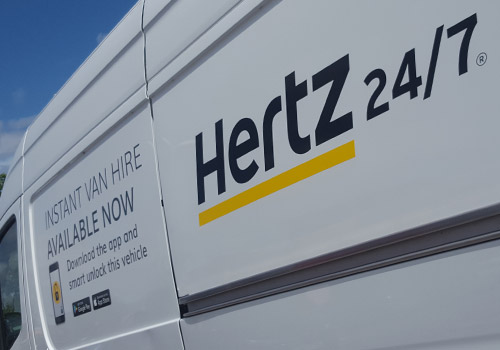Page content
How do you cater for different customers?
As a car rental business, let’s consider your business, your goals, your market and your services...
- Do you mainly serve customers in a single market, or throughout an international market in multiple languages and currencies?
- Are your customers mostly leisure or business, or a mixture of both?
- If you serve leisure and business customers, do you have customer journeys tailored to each type of customer?
- What about attracting new customers who have never rented a car before? Do you treat those customers in a different way to customers who have rented from you many times before?
- Are most of your repeat customers in your loyalty scheme, and how do you encourage more customers to join?
Some of these points may be very important to some people and completely irrelevant to others, so it's up to you to identify with what motivates your customers, and deliver on those needs.
What motivates people to buy?
Not everyone has the same needs. Customers are motivated in different ways, such as by price, quality, reliability, service, prestige, urgency, status, and so on. This applies to people buying everything from TVs to groceries, and of course car rental.
- Those motivated by price are more likely to shop around, regardless of brand.
- Those who want reliability in both customer service and in the vehicles they rent may be drawn to one of the major brands.
- Those who want to ensure safety for their young family may seek out a car rental company who can supply the right size child seat AND show them how to fit it.
Customers will make up their own minds, but you can help them.
No business can be everything to everyone. Viewing everyone as a potential customer can be a mistake, and treating all customers the same without attempting to address their specific needs can lead to missed opportunities and losing customers to your competitors.
Your marketing efforts can go to waste, because you’ll be trying to reach out to anyone who might need to rent a car at some point in their life.
If you’re taking this general approach this whilst your competitors are focusing their attention on more specific types of customer and giving them precisely what they want, it will be your competitors who prosper, and their customers who benefit.
In other words, you lose!
Does this mean that you should only target one type of customer?
No. The car rental industry has a broad scope, and within our sector we can offer a wide range of options. By targeting specific customer types with what matters most to them makes a lot of sense, but what actually does matter most to them?
- Some brands offer meticulously clean, newer, lower mileage cars to customers who are happy to pay more for the privilege.
- Some companies cater for customers who only want the cheapest car available.
- Some customers will want their vehicle to be delivered to them or left in a priority bay ready for quick and easy collection.
- Some want to choose economical vehicles based on miles per gallon.
- Some specifically want to hire electric vehicles.
- Some might want to rent before actually buying the car.
- Some will want a van for several days, and others will want a van for just a couple of hours.
- Some want to hire a motorcycle.
- Some want a chauffeur drive service.
- and so on...
If your reservation platform can allow customers to provide their age, identify where they’re from, etc., and even draw on any previous rentals they may have made with your company, you can then align the reservation path closer to their needs.
Then, if you can remove clutter and distractions by filtering out things you KNOW they won’t need and present them with the kind of vehicles, features, options, information and promotions more closely aligned with their objectives, they’re more likely to complete the reservation and buy from you.
So what kind of customer personas do you need?
That’s really up to you and the market you’re aiming at.
Think of the differences in the needs of a business traveller who needs an executive car delivered to their hotel so he can travel in style to and from meetings with colleagues, compared to price sensitive customers who wants a small economical car for a few days to explore the island they’re taking vacation on.
In the second example the customer might feel that a local independent car rental company is likely to be the best fit because they can be quite cheap. Is that type of customer someone you would want to attract, and a good fit for your brand and business model?
Brands and their target markets
The big car rental brands understand that they can't be all things to all people, and therefore some of the premium car rental brands ALSO have other brands under their umbrella, such as Thrifty, Dollar and Firefly being under the Hertz umbrella, and Avis also operating the Budget and Zipcar brands.
Those other brands are not intended to compete with the parent company, but instead focus their efforts on other markets. Their target customers will be somewhat different to those that the premium brands may be aiming for, and their pricing, products and overall experience will be more aligned with those other markets.
So a quick recap…
Customers have different needs, preferences and expectations, which can be based on where they’re from, where they’re renting, their age, their budget, number of passengers, length of rental, and so on.
Some people put price at the top of their list, and tend to look for the cheapest car rental for their vacation, and will be perfectly happy with a 5-10 year old car, whilst others would expect a meticulously clean, low mileage car no older than 3 years.
Some will want a dream car
and will be looking for something sporty or exotic.
Some will want something spacious with enough luggage capacity for their family of 5 for a two week vacation.
Some will be in their late teens or early twenties, never rented a car before, and need to know about minimum driving ages, young driver surcharges and insurance options.
Some customers might not even want a car...
Some customers might not want a car at all. They might need to rent a van to help them move house, or to transport items home from a DIY store.
Van renters are likely to have different criteria than a car rental customer, and they're more likely to be interested in the physical dimensions (length, width, height and volume) of the cargo bay.
Compare the business model which is satisfied by a short term van rental solution such as Hertz 24/7 to the more conventional way of renting a van from their main van website, you’ll see how different the process needs to be to cater for that type of customer.
Compare Hertz' short term van rental service at Hertz 24/7 to their main main van website.
A typical user of this service has very different needs to someone renting a van for a few days, or a car for a weekend break.
Compare Hertz' short term van rental service at Hertz 24/7 to their main main van website.

Customer needs using persona examples
To give our marketing campaigns and marketing strategies focus, we create scenarios based around typical requirements of each potential type of customer by creating a customer avatar. We then aim to ensure that our designs, products and services cater for them, but without the needs of different customer types compromising each other.
Are avatars and personas the same thing?
The term customer avatar
is often used interchangeably with customer persona
There are so many similarities in their meaning that it might seem pedantic to differentiate between them. But it's fair to consider that an avatar
is often given a name, personality and background of their life, family, job, likes, dislikes, etc.
A persona
is a more general term and could describe a type of customer, such as a single woman in her 20's with 2 small children, or a married man in his 40's who enjoys music and motor racing.
Car rental customer persona examples
Using customer personas for the following examples, let's consider three people with different needs arriving at your car rental website. Two of those visitors can be considered to be Leisure
customers and need cars for their holidays, but they have different criteria besides when and where they intend to rent a car. The third visitor needs a car for a couple of months whilst on business.
Persona example 1
A man aged 24 from the UK is planning a romantic weekend away in the south of France with his girlfriend. He has decided to hire something special, and therefore isn’t interested in the cheapest cars available.
He is ideally looking for a sporty two seat cabriolet, and is looking forward feeling the wind through their hair as the drive along the coastal roads near Nice.
So he visits you car rental website:
- Can he find the car he wants to help make this a memorable trip?
- He might be so focused on the glamour aspect of the car he wants to rent that he might not be aware of some options (ie insurance) which might be to his benefit.
- He wants to pay at the location when he picks the car up, instead of paying in advance.
- Is there any important information which he NEEDS to be made aware of, such as any age restrictions and age related surcharges? Different countries have different age restrictions on certain types of vehicles, and it would be a really poor experience if they were to arrive at the rental location to pick up the car he has reserved online, only to find that he’s not old enough to drive it.
- If that is the case, if he is not quite old enough to rent his ideal car, can a suitable alternative be offered to him so he still ends up making a reservation instead of going somewhere else?
- With the UK no longer in the EU, specific requirements for documentation (drivers licence, ID, etc) need to be presented at the rental location when collecting the vehicle. How do you ensure that he is made aware of these requirements?
Persona example 2
A German man in his late 30’s has booked a holiday in Florida for himself, his wife, and their two children aged 3 and 8 years old.
He found an attractive offer for 20% off pre-paid bookings within a certain date range, and that fits perfectly with his plans. He needs to find details of each vehicle available to be sure that it will accommodate his family and their luggage, because he’ll be picking the car up at Miami Airport.
He also wants air con, GPS, and something to allow his children to watch videos whilst they’re travelling.
His wife might also want to drive, and so he needs to find out how to include her in the reservation, and how much extra it will cost.
For peace of mind, he also wants to know about what could happen if the car breaks down, and if there would be any additional charges if he returns the vehicle early.
So he goes to your car rental website to try and find what he’s looking for:
- Can he find the car with the features, equipment and information that he needs?
- Can he easily find the correct seat (either child seat, infant seat or booster seat) for each of his children, and see what additional cost these will incur?
- Does the car have a built in sat nav as part of the price, or will it cost extra?
- Was he able to apply the discount code for the special offer?
- Is the price displayed next to the vehicles inclusive of the discount, or will it be applied at the end of the booking process?
- Is he able to add his wife as an additional driver, and how much extra will it cost?
- Does the online booking process allow her details to be captured entered, including age which might impact their choice of vehicle?
Persona example 3
A man in his 40s needs to spend between 2 and 3 months in Italy on business, and needs a car on a long term rental.
His company are paying, and they have restricted his choice of vehicle to groups A, B or C.
He wants to know before booking, that the length of his reservation can be amended whilst on rent, because he is not exactly sure how long he will be needing the car.
Mobile First
When considering your customer journey, bear this in mind...
Around two thirds of people using the internet use mobile phones. Compared to the desktop layout of your website, the layout of each page on a mobile device is far more restricted, and therefore pages need to be streamlined with minimal clutter.
What could this mean in terms of our three persona examples?
- It is important that the 24 year old persona #1 who wants to rent a sporty cabriolet in France is made aware of any age restrictions and possible surcharges, so he doesn’t want to be distracted by information which is irrelevant to him, but highly relevant to personas #2 and #3. Nor does he want to see different age information relevant to renting in countries other than France.
- It’s important that as a business customer making a long term rental, persona #3 can easily find the information he needs, including how to extend his rental during the time he has the car.
He wants to be able to do this without seeing alerts for young drivers, which is irrelevant to him, but highly relevant to persona #1. - Persona 2, who is travelling to Miami might also benefit from knowing about PlatePass (an automated road toll charging device), which would be completely irrelevant to personas 1 and 3 who are not travelling to the US.
- Persona 1 wants to pay at the location, whereas persona 2 is taking advantage of a promotion to save 20% off a pre-paid reservation.
What differences should include for pay now verses pay later reservations? Are there any differences to the terms of cancellation, and what processes do you have in place for increases or reductions in price for customers modifying a pre-paid reservation?
In conclusion
We have looked at some examples of customer personas, and how meeting their needs may require certain features, options, information, price adjustments, and so on to be applied to the booking path they take.
Make it difficult and you lose!
Personalise it and make it easy for them, you'll attract and keep more customers. But make it difficult and you lose.






